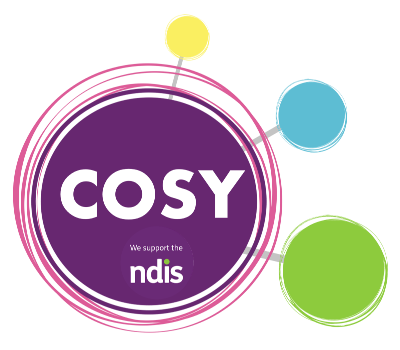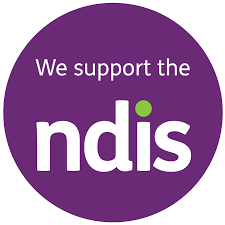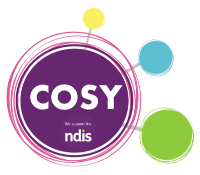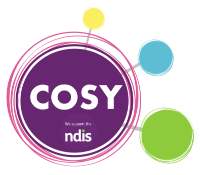Maximize Your NDIS Funding: Essential Tips for Allied Health Participants
Navigating the NDIS
Navigating the intricacies of NDIS funding can often feel overwhelming, especially for those relying on allied health services. Recent changes in the NDIS framework have introduced new opportunities and challenges for participants striving to make the most of their allocated support. Understanding these changes is crucial for participants and families seeking to optimize their funding and ensure the best possible outcomes from their healthcare services. In this post, we will explore key strategies and practical tips that can help NDIS participants and their families effectively manage and utilize their funding, providing insights into how to make informed decisions about allied health services. Whether you are new to the NDIS or a seasoned participant, this guide aims to empower you with the knowledge needed to navigate the system with confidence. For more detailed information on stretching your NDIS funding, check out this helpful resource.## Understanding NDIS Changes
Impact on Allied Health Services
The NDIS has introduced new guidelines for allied health services, aiming to improve access and quality of care. These changes affect how participants can use their funding for various therapies and treatments.
For example, the NDIS now allows for more flexible use of funds across different allied health services. This means you can allocate your budget more freely between physiotherapy, occupational therapy, and speech therapy based on your changing needs.
Additionally, there's an increased focus on evidence-based practices. Allied health providers are now required to demonstrate the effectiveness of their treatments, ensuring that participants receive the most beneficial services.
Lastly, the NDIS has streamlined the process for accessing allied health services, reducing waiting times and paperwork. This allows participants to start their treatments sooner and with less hassle.
Navigating Recent Policy Updates
Staying informed about NDIS policy updates is crucial for maximizing your benefits. Recent changes have introduced new opportunities for participants to tailor their support plans.
One significant update is the introduction of flexible budgets. This allows participants to move funds between different support categories more easily, giving you greater control over how you use your funding.
The NDIS has also made changes to the limits that are claimable for non-direct supports such as travel to and from appointments.
Lastly, there's been an increased emphasis on capacity building. The NDIS now encourages participants to include goals and supports that help build independence and skills for the future.
Tips for NDIS Funding
Making the most of your NDIS funding requires careful planning and smart decision-making. Here are some strategies to help you maximize your plan.
Making the Most of Your Plan
Effective management of your NDIS plan can significantly impact the quality and quantity of services you receive. Here are some key tips to help you stretch your funding further.
First, prioritize your needs and goals. Focus on the supports that will have the most significant impact on your daily life and long-term objectives. This might mean allocating more funds to certain therapies or assistive technologies.
Next, consider using a combination of services. For instance, you might benefit from a mix of individual therapy sessions and group programs, which can be more cost-effective while still providing valuable support.
It's also important to regularly review and adjust your plan. Your needs may change over time, so don't hesitate to request a plan review if you feel your current supports aren't meeting your requirements. For more detailed advice on maximizing your NDIS funding, check out this helpful guide.
Choosing the Right Providers
Selecting the right service providers is crucial for getting the most value from your NDIS funding. Here's how you can make informed choices.
Start by researching potential providers thoroughly. Look for reviews, ask for recommendations from other NDIS participants, and check if the provider has experience with your specific needs.
Don't be afraid to shop around and compare services. Many providers offer initial consultations or trial periods, which can help you assess if they're a good fit for you.
Remember, you have the right to change providers if you're not satisfied. The NDIS allows flexibility in choosing and switching providers, so make sure you're getting the best possible service for your funding. For more insights on making the most of your NDIS funding, visit this informative resource.
Beginner's Guide to Allied Health Support
If you're new to the NDIS or just starting to explore allied health services, this guide will help you navigate the basics and get the support you need.
Key Steps to Get Started
Beginning your journey with NDIS allied health support can seem daunting, but breaking it down into steps can make the process more manageable.
- Identify your needs: Start by assessing which allied health services could benefit you most. This might include physiotherapy, occupational therapy, speech therapy, or others.
- Research providers: Look for NDIS-registered allied health professionals in your area. You can use the NDIS provider finder or ask for recommendations from your support coordinator.
- Schedule assessments: Many allied health services begin with an initial assessment to determine your specific needs and create a treatment plan.
Remember, it's okay to take your time and ask questions throughout this process. Your health and wellbeing are the priority. For a comprehensive guide on maximizing your NDIS plan, check out this valuable resource.
Common Questions Answered
As you start your NDIS allied health journey, you might have several questions. Here are answers to some common queries:
Q: How often can I access allied health services?
A: The frequency depends on your individual NDIS plan and the recommendations of your allied health professional. Some participants might need weekly sessions, while others might benefit from monthly check-ins.
Q: Can I change providers if I'm not satisfied?
A: Yes, you have the freedom to choose and change providers. If you're not happy with the service, you can look for a new provider at any time.
Q: What if I need more funding for allied health services?
A: If you find your current funding doesn't cover all your needs, you can request a plan review. Be prepared to explain why you need additional support and how it aligns with your goals.
For more detailed answers to common NDIS questions and tips on maximizing your funding, visit this helpful page.



